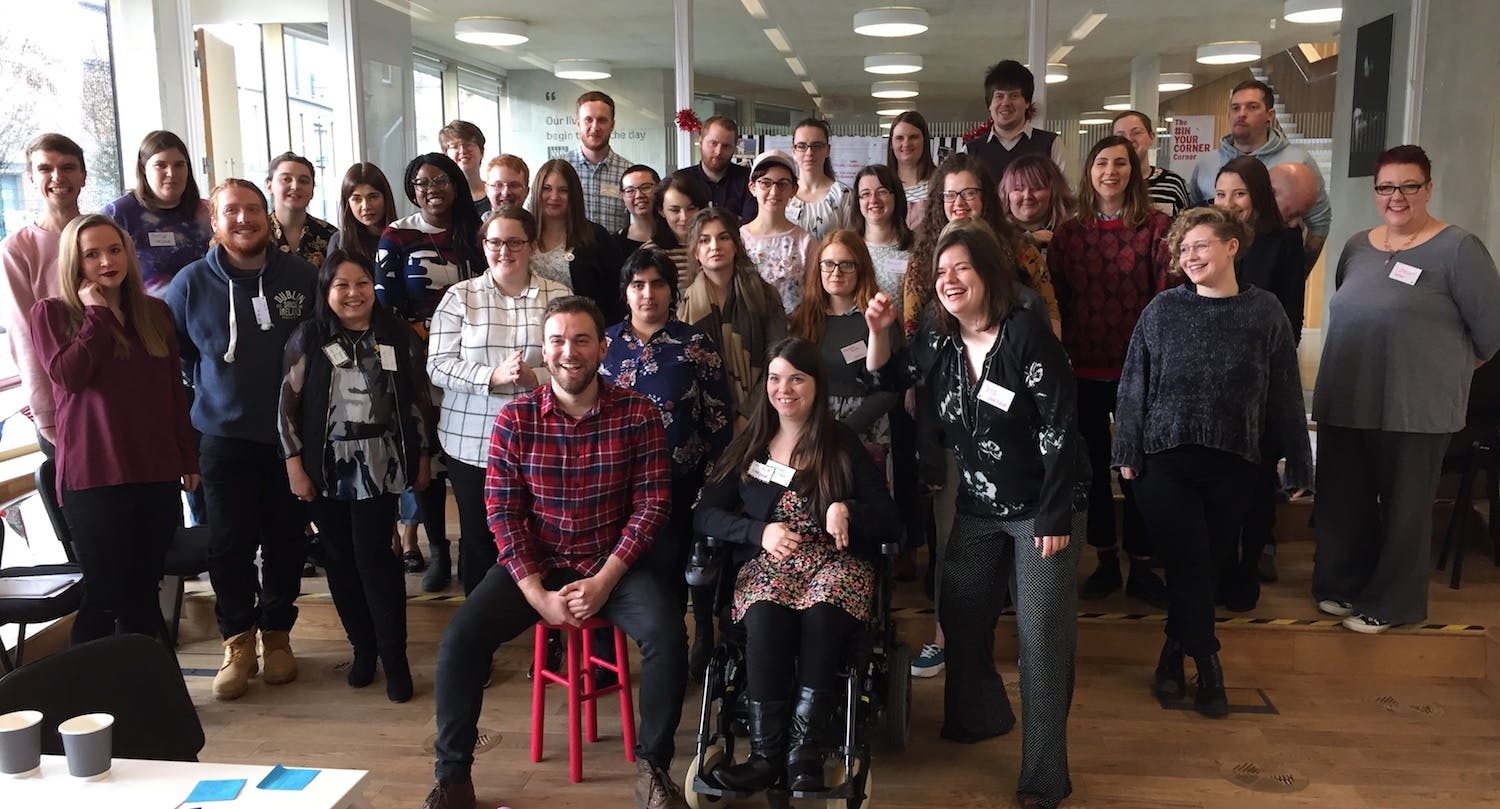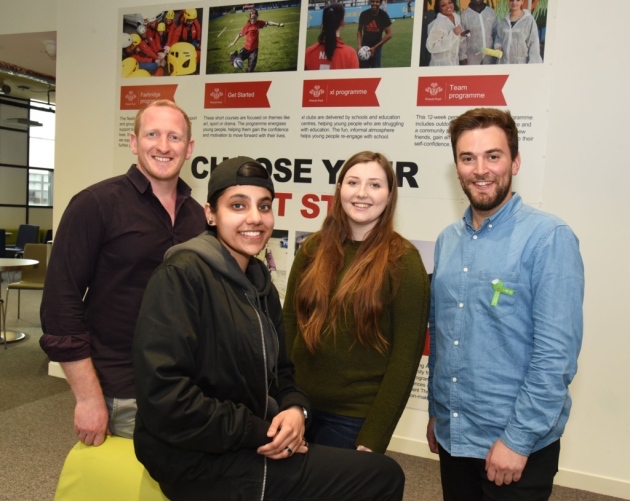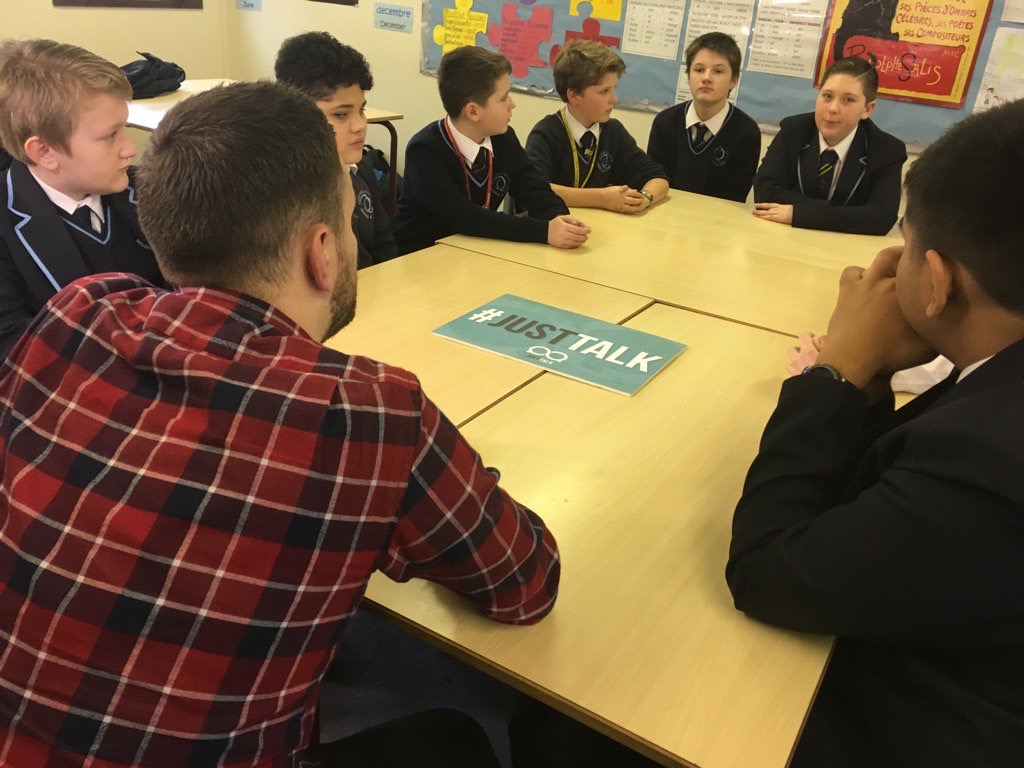From Waterloo Bridge To A World-Wide Mental Health Perspective
updated on May 29, 2018

Happiful talks to Jonny Benjamin about his new book The Stranger on The Bridge and the need for a global approach to mental illness
Jonny and I are chatting on the phone at the end of what has been a particularly hectic couple of weeks for him. His first book The Stranger On The Bridge - My Journey From Despair To Hope, was published at the beginning of May. It depicts his mental health journey from childhood to today, meeting Neil Laybourn (the 'stranger' on Waterloo Bridge who prevented him from taking his own life in 2008), the documentary which followed the moment they were reunited and his subsequent work, both on his own mental health and championing better services and support for others.
In addition to the launch campaign for the book over the past few weeks, Jonny and Neil have been working hard throughout Mental Health Awareness Week, continuing to raise awareness and decrease the stigma around mental ill health.
“I’ve been all over the UK,” he ventures. “Doing talks, promoting the book - all sorts of engagements. Today I’m at Bloomberg, yesterday I was at a conference and before that at a school. I feel so lucky to have the opportunity to have such a varied workload - though it doesn’t feel like work - and I get to chat to lots of different people.”

Jonny Benjamin and Neil Laybourn at a mental health discussion
Jonny is now a full-time mental health campaigner and has lived experience to support the work he does. The Stranger on The Bridge reveals his experience with mental health since childhood, his early struggle with his sexuality and a diagnosis of schizoaffective disorder, a combination of schizophrenia and bipolar, at the age of twenty - as well as the period around the incident on Waterloo Bridge and beyond.
Having read his book, I am aware of how passionate and driven Jonny is but also the toll talking about his mental health continually could have sometimes. He admits that he occasionally finds it hard to say no to work, and I wonder what the impact is of revisiting that day on the bridge is?
“It varies to be honest, depending on how I am mentally at the time,” Jonny responds. “The good thing about my story is that there are those challenging, difficult periods particularly growing up, being a teenager and not addressing my mental health but ultimately I hope it's a story of hope and overcoming adversity."
The best thing, though, is the response and us getting to chat to people afterwards. People sharing their experiences and experiences of loved ones.
“Obviously I still battle with my mental health but it’s always cathartic to talk about it. I do a lot of public speaking with Neil and that really helps because if I did it on my own I’d find it difficult and Neil’s just got a naturally positive attitude.” He pauses. “The best thing, though, is the response and us getting to chat to people afterwards. People sharing their experiences and experiences of loved ones. It’s so positive we’re talking about these issues and addressing them rather than hiding away from it all.”
Jonny is most certainly addressing the issues around mental health and illness - work for which he rightly received an MBE in 2017. As well as the vast amount of public speaking he does, he’s set up #ThinkWell, a mental health programme for secondary schools across the UK and he is now looking at a mental health workshop for primary schools. Educating others about mental health and speaking out is at the core of all he does but he insists that through the work he does, he continues to be educated.
“I’ve learnt so much about myself and mental health in general through meeting and talking to other people. People might articulate something you’ve never been able to articulate, or they might suggest something that might help - a book or a resource.”
He continues. “The main thing I’ve learnt though, is that everyone’s experience is so individual and unique. Over time it has made me more frustrated with the current treatment that we receive and the need to label people or put them ‘in a box’ for mental health treatment.”
I chat with Jonny about the epic change in mental health conversations that have taken place over the past three years and we agree that there are an incredible amount of ways to access information and communities outside of the NHS, if you are ready and able to find them. However, his concern is reaching the people who are not able or ready.
The people we need to reach are those who are still uncertain about talking out. We go into a lot of workplaces and prisons where there is still such a massive stigma and you realise that there is still a long way to go.
"The conversations that happen now are extraordinary and I don’t ever want to be negative about that - but the people we need to reach are those who are still uncertain about talking out. We go into a lot of workplaces and prisons where there is still such a massive stigma and you realise that there is still a long way to go."
"We need to reach those people who are harder to reach, including older people for who ‘just getting on’ is ingrained. It’s a challenge to get them engaged and keep them talking.”
Despite the massive growth in conversations about mental health and campaigns such as Heads Together, it’s worrying that the stigma around mental illness is still so strong in some areas and communities. Jonny is aware that there is a possibility that people who work in mental health advocacy can miss this. “It’s something Neil and I talk about, this ‘bubble we’re in. We talk about mental health so much and with people who are happy to talk about it. We need to step outside of that bubble.”
It’s not just the UK Jonny has concerns for. “We’ve visited New York a couple of times now in the last six months to give talks and I always thought that they would be much more open there but actually they do seem to be behind the UK. When we went into some workplaces, their response was ‘We don’t talk about this here’ or ‘No-one’s ever spoken to us about this so honestly’ and that was a shock to me as I’d just assumed that they would be more liberal and open.”
Jonny chats about the fact that the UK is in a better position than a lot of countries now, thanks to the massive weight thrown behind the mental health conversations by the Princes William and Harry, although he is concerned that we take a view on mental health that extends beyond our own shores. A visit to India, which he writes about in the book, left him with great sadness and a drive to think more about how mental health is treated globally.
“It was sad and shocking. I saw people chained up and put in cages due to their mental health and the language that was used about mental health, the lack of belief about recovery…” he trails off. “There is so much work to do, I’d love to do more work around the world.”
There’s so much we can take from different countries and cultures. Not all of it is positive and some of it needs to change but there is a lot out there that is incredibly innovative.
“It’s not just about seeking improvement elsewhere though, it’s about what we can learn too. I’m hoping to go to Australia next year as they seem to be further ahead than us in terms of mental health treatment and the youth mental health service over there is vastly different and better than ours.”
From his own experience of mental illness, his campaigning and documentary making, Jonny has developed both knowledge about the wider mental health picture and drive to move the conversation forward, acknowledging that mental illness is a universal challenge in which geographic borders do not exist. This seems to be echoed by an announcement earlier this month, by Jeremy Hunt, of the first International Ministerial Mental Health Summit due to be held in October this year, in London.
“We have to learn,” Jonny urges. "Obviously different cultures have different ways of treating and perceiving mental illness, In Brazil they use people who have experienced mental health issues, who have been in in-patient units, to come back and help. They call them ‘healers.’ They’ve experienced it first-hand and they can help new patients that come in.”
“There’s so much we can take from different countries and cultures,” Jonny continues. “Not all of it is positive and some of it needs to change but there is a lot out there that is incredibly innovative.”
As we start to wrap up our conversation, Jonny tells me that he continues to work to get mental health valued in the same way as physical health.
"We’re taught from a young age to brush our teeth twice a day, it’s drummed into us. If there was that emphasis on mental health that there is on dental health, particularly for boys… that would be amazing. Taking time out to think about how you’re doing... daily affirmations.”

Jonny Benjamin talks mental health with schoolchildren
“We need to improve mental health from a young age - making it a positive and everyday." He pauses again."You know, dental - then mental. Brush your teeth and then spend a couple of minutes on your mental hygiene.” I love this concept, its simple but could be so powerful.
From the everyday to the epic and world wide, Jonny continues his campaigning, one conversation at a time. His work and book shows that continuing to talk about mental illness and extending that opportunity to others, really can make the biggest difference.
The Stranger on The Bridge - My Journey From Despair to Hope is available now.
To access a counsellor in your local area or for more information on mental health, visit Counselling Directory

